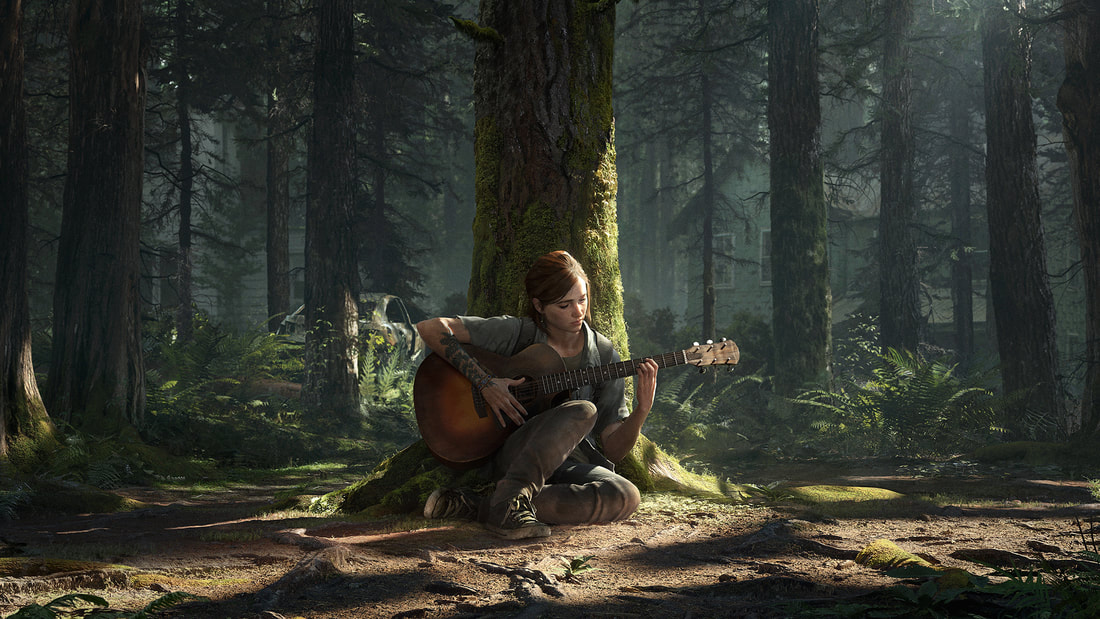|
If I wasn't a cheap bitch, this would be a Last of Us 2 review. Alas, I have some other things to pay off and am in post-quarantine application hell, so no, not quite on the table.
Before we go any further, warning for spoilers for The Last of Us 2. Turn back if you'd like to remain unspoiled (though goodness knows the internet has probably spoiled you already). But that is hardly going to stop me from talking about the insane Metascore climate and how this reminds me of a very similar situation that happened to a very different community: the book-lover community reaction to Go Set a Watchman (the sequel to the beloved To Kill a Mockingbird). At the end of the day, both stories started with a beloved adventure that changed people, that made them fall in love with the characters, world, and push the boundaries of their perspective. Unsurprisingly, people latched onto these open-and-shut experiences, revering them. At least, they seemed open and shut, the story and characters encased in their "perfect" endings like petrified mummies, preserved in our memories forever. Until they weren't. So let's start with telling the story of Go Set a Watchman. For decades, To Kill a Mockingbird (TKAM) has been one of the most evangelized and renowned novels in American history. Scout's coming-of-age story changed so many people while reading it, making them question justice, inequality, and the nature of humanity. Just like young Scout, readers admired her father, Atticus Finch, and saw him as this pinnacle of righteousness, goodness, and progress. After all, that's how his daughter saw him. Harper Lee perfected this infectious peek into the eyes of a young girl having to come face to face with the harsh truths of the world, and her father seemed to be a rare good person leading it. Go Set a Watchman (GSAW) changed that narrative. While TKAM maintained this reverant view of Atticus, GSAW sees it crumbling down. It makes it clear that, though Atticus defended a black man, he defended him because he was a "good one" and it was his job. He didn't do it because he was some race revolutionary. In actuality, he held some racist views that were just as insidious as some of his neighbors who had booed Tom Robinson in the stands. Scout (and in turn, the fans) had to come to grips with the fact that their hero wasn't who they thought he was; that maybe he never was. Well, considering many book readers grew up seeing Atticus as their "one good white man", they didn't love hearing Atticus Finch was racist. They felt it a character assassination, even though no where in TKAM does it say, "Atticus is not racist" or Atticus say "I think black people deserve rights". He just made it clear he preferred to defend a man who did nothing wrong over a man who was "low". Skin color didn't matter, but not in a positive way. It was just Scout's young eyes that helped people jump to those easy conclusions. As a biased, not-quite-a-fan of TKAM, I found the ideas of GSAW compelling. There could always be a dichotomy of a man having progressive ideals, for wanting to make better people out of his children, but still holding onto the racist ideals of his forefathers. But it's not very easy to cast heroes aside, is it? In real life, and especially in stories, people would prefer they remain these pinnacles of goodness or love or justice. Having someone they see as an ideal turn human doesn't leave a good taste in their mouth, even if it's realistic. And that's what leads us to The Last of Us 2 and what happened to Joel. While Joel didn't turn out to be a racist, the game did make the inciting incident of the game his brutal and tragic death. Fans were totally rocked by the choice, having their hero and resident in-game badass wrecked by some local raiders. They could never see their Joel going down like that, a hostage murdered in cold blood. If anything, they'd have their boy go down swinging. However, they seem to discount the fact Joel is older. More worn. Maybe settled into his life. The terrible things he did in the first game would take a toll on anyone. And even if it was seconds after the first game ended, when Joel was at his "height", any fighter in a world has their day. Being good at it doesn't make him immune to the horror or danger or bloodshed. It's fair to say that someone can feel like Joel is invincible, after spending so much time with him breaking faces and shooting monsters and mowing down a hospital. That doesn't remove his fragile humanity, though. I'm not saying people weren't allowed to be upset to watch him die, but to have such a visceral reaction to it happening in a story? It's letting idealization win over reality. It should and will break your heart. But it does not make the ripples of his life, the world he left, any less interesting. And biting at the game with venom in your mouth just because he came to a helplessly human end isn't fair. Just like it isn't fair to assume GSAW is some false cruelty because it exposed the fact that your favorite "not all white people" southern gentleman was, in fact, just like everyone else. Stories aren't made to just tell you what you want to hear. Sometimes, they tell you things like your worst nightmares and then guide you through that. But if you spit in its face and call it trash for daring to hand you a harsh reality, no one learns anything. While I can't say the game is some masterpiece or GSAW is a revelation, there are pieces of wisdom in both that everyone deserves to taste and swallow that have nothing to do with dead heroes. But killing a beloved character doesn't make a story trash and the people saying it does are setting themselves up for a lot of disappointment and stunting if they can't grow past the heroes in their lives that fall. Maybe its pessimistic for me to like that kind of view, but more than anything I just find it a little too reactionary to reject something completely and give it incredibly bad reviews just because it debunked the heroes you revered perhaps a little too much. If the game really is trash, go off. But too many people just write them off for daring to remind that humans are fragile and imperfect and, sometimes, disappointing. Oh, and also gay and trans people existing won't kill you, so kindly see the door about that shit. Maybe there's a reason you need to reevaluate yourself. Okay, unedited blog me out.
0 Comments
Leave a Reply. |
|


 RSS Feed
RSS Feed
